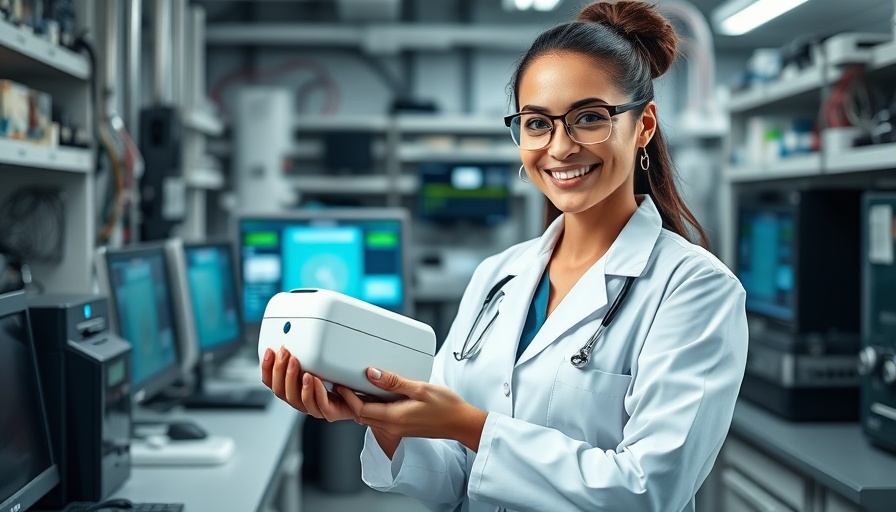
AI-Radar: A Quiet Revolution in Health Monitoring
The latest innovation in health technology is set to make waves in how we monitor vital signs, particularly for the elderly and those in care facilities. Researchers at the University of Waterloo have developed an AI-powered radar system that can remotely track important health metrics like breathing and heart rate without the need for direct contact. This breakthrough could significantly improve comfort and privacy for patients who often feel overwhelmed by devices and wires.
The Problem with Traditional Health Monitoring
Conventional methods of monitoring health typically require physical contact—think of pulse oximeters and smartwatches that must be worn. This can be uncomfortable and even alarming for some patients, particularly in long-term care scenarios. Furthermore, traditional methods can sometimes yield unreliable data, especially for individuals in various states of health or mobility.
How Does Radar Work?
The radar system works by emitting low-power radio waves that bounce off people, gathering data on their movements. Advanced AI algorithms then process this information, allowing caregivers to monitor subtle changes in vital signs without direct contact. This technology is reportedly immune to limitations that cameras might face, such as lighting challenges or obstructions from clothing.
Implications for Elderly Care
For caregivers and family members, the ability to monitor loved ones remotely without invasive equipment is a game changer. The radar system can alert caregivers to potential issues like breathing difficulties or falls, creating a safer environment in nursing homes and providing peace of mind for family members. Imagine a system that watches over elderly residents silently through the night, ready to notify caregivers at a moment's notice.
Looking Toward the Future
The potential applications of this technology are vast. As it evolves, we can expect it not only to measure vital signs but also to assess mobility and well-being in real time. This could help to identify long-term trends and signs of deterioration before they become serious health crises. Such predictive monitoring can transform how we view health management, especially in aging populations.
Call to Action
If you or someone you know works in care providing settings, consider exploring how AI-driven health monitoring technologies can enhance care for your loved ones. Stay informed about the latest advancements in health tech by subscribing to trusted medical technology news sources.
 Add Row
Add Row  Add
Add 




Write A Comment